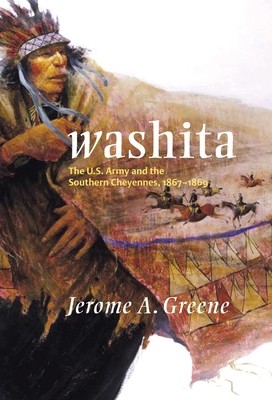
- We will send in 10–14 business days.
- Author: Jerome A Greene
- Publisher: University of Oklahoma Press
- ISBN-10: 0806138858
- ISBN-13: 9780806138855
- Format: 15.2 x 22.6 x 1.8 cm, minkšti viršeliai
- Language: English
- SAVE -10% with code: EXTRA
Reviews
Description
On November 27, 1868, the U.S. Seventh Cavalry under Lt. Col. George Armstrong Custer attacked a Southern Cheyenne village along the Washita River in present-day western Oklahoma. The subsequent U.S. victory signaled the end of the Cheyennes' traditional way of life and resulted in the death of Black Kettle, their most prominent peace chief.
In this remarkably balanced history, Jerome A. Greene describes the causes, conduct, and consequences of the event even as he addresses the multiple controversies surrounding the conflict. As Greene explains, the engagement brought both praise and condemnation for Custer and carried long-range implications for his stunning defeat at the Battle of the Little Bighorn eight years later.
EXTRA 10 % discount with code: EXTRA
The promotion ends in 22d.05:00:09
The discount code is valid when purchasing from 10 €. Discounts do not stack.
- Author: Jerome A Greene
- Publisher: University of Oklahoma Press
- ISBN-10: 0806138858
- ISBN-13: 9780806138855
- Format: 15.2 x 22.6 x 1.8 cm, minkšti viršeliai
- Language: English English
On November 27, 1868, the U.S. Seventh Cavalry under Lt. Col. George Armstrong Custer attacked a Southern Cheyenne village along the Washita River in present-day western Oklahoma. The subsequent U.S. victory signaled the end of the Cheyennes' traditional way of life and resulted in the death of Black Kettle, their most prominent peace chief.
In this remarkably balanced history, Jerome A. Greene describes the causes, conduct, and consequences of the event even as he addresses the multiple controversies surrounding the conflict. As Greene explains, the engagement brought both praise and condemnation for Custer and carried long-range implications for his stunning defeat at the Battle of the Little Bighorn eight years later.


Reviews